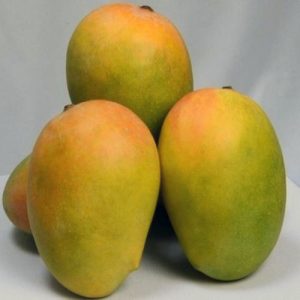
Why Is It That Mangoes Are Only Available In Summer?
Mangoes are the fastest selling fruits; it doesn’t take long for them to go from the shelf to the customers’ house. And farm-fresh mangoes have an even greater value in the eyes of the buyers. Being a seasonal fruit mango, the demand for fresh organic mangoes is always high and that’s the reason its price cap is also on the higher side. These seasonal fruits are known to provide a lot of health benefits in addition to their highly addictive taste. They help in the prevention of anemia in pregnant women by increasing the iron absorption in their body.
Vitamin C in mangoes regulates the hemoglobin count; a good hemoglobin count leads to a better iron quantity in the blood. Apart from this, mangoes also improve gut health and regulate body fluids. So, it’s always a good idea to add a punch of fresh organic mangoes to your summers.

But, why mangoes are available only in summers?
Mangoes are tropical fruits. Hence, they grow in hot weather, unlike spring, winter, or fall season.
Mangoes start producing the fruit based on light, humidity, and an elevated surrounding temperature; these things indicate to the plant that the summer is near. That is when they are ready to produce fruits.
In tropical regions, there is a lot of difference in rain and temperature. That’s why mangoes are more adapted to grow in the tropic regions. The production of fruits depends on flowering, which is often the first indicator of the yield for the coming season.
When is mango season in India?
Flowering starts in December – January and lasts till February to the beginning of March. It can be distorted by sudden rains or heat waves during this period.
Mangoes harvest season ends with the hit of the monsoon. If too little or too much rain falls during the monsoon, it influences the mango crop next year. The heat produces favorable conditions for the fruit to ripen. So, the mango season in India starts in March-July depending on the varieties of mangoes.
In fact, the fruit traps the summer heat, that’s the reason mangoes are considered to produce heat when consumed. Not all trees will flower equally in one orchard especially for varieties like Alphonso mangoes.
A mango tree can produce from 20 kg to 200 kgs in a harvest season. That’s why mango yield is difficult to forecast, as it also varies a lot across years.
India is blessed with a wide variety of mangoes. Each geographical region has its own unique variety of mangoes with signature taste, aroma, and texture that can’t be matched up to the mangoes in other parts of the country.
If we talk just about the Alphonso mangoes, they’re grown in Maharashtra and also Gujarat. But, the taste of Devgad and Ratnagiri Alphonso mangoes is vastly different in terms of taste, texture, and size compared to their counterparts in Gujarat. India is the land of mangoes; it is the major global producer of mangoes. European processors and traders often complain about the difficulty to read the Indian mango market. And the biggest reason behind our humongous mango produce is the scorching summers that are impossible to find in Europe.
